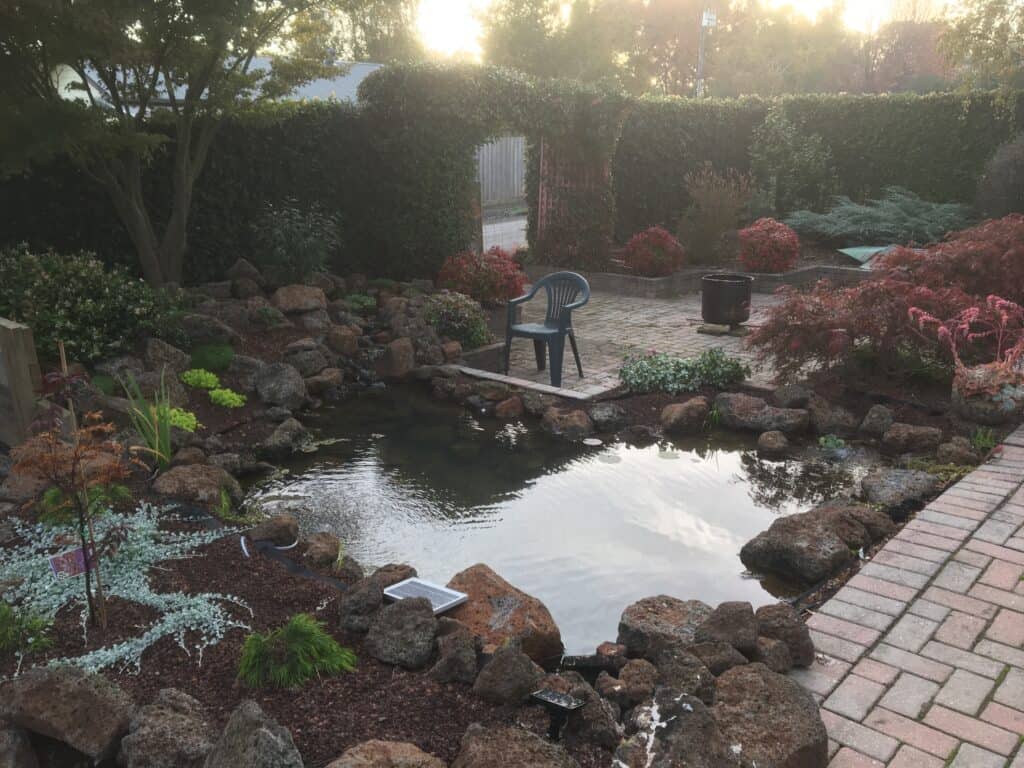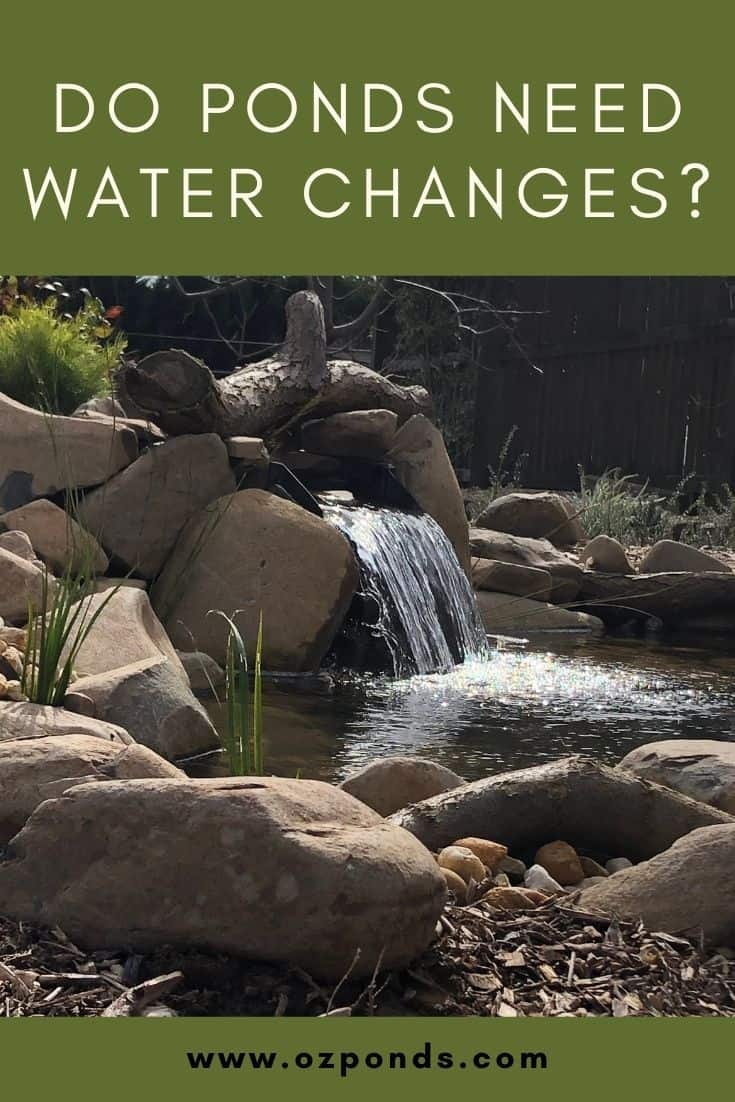A well designed pond with good filtration and sensible fish numbers should not require a manual water change.
If you want to keep large numbers a fish in a small area you may need to conduct water changes.
Having said that it is still possible to keep reasonable numbers of fish without the need of water changes. In aquaponics we keep densely populated fish numbers without the need for water changes.
What makes this possible is the filtration of the water.
If you’ve never heard of aquaponics before its the coming together of aquaculture (raising fish) and hydroponics (growing plants in water).
The system works by utilising the nitrogen produced by the fish as food for the plants.
Read our article on the nitrogen cycle in ponds if you’re unsure how this works.
A wetland or bog style filter works in exactly the same way and is my favourite pond filter for any sized pond. You can click the link to read my article on wetland/ bog filters.
I have two of these systems on my patio. They basically never get topped up by rain, unless it comes in side ways. The only water that is added is what i top up due to evaporation.
The plants along with the beneficial bacteria living within filter form a perfect combination.
This harmonious and natural filter is in my opinion the best biological filter and pond owner can have.
It takes the dirty water and purifies it. The clean water is returned to the fish tank or pond.
So by creating a well designed bog or wetland filer in a pond we can say bye bye to water changes.
I have written many articles on bog and wetland filters cause i love em so much. If you are interested in building one check out my diy pond filter article.
Will a pond benefit from water changes?
Absolutely! Even with a perfectly designed filter and sensible fish numbers, nutrients and pollutants will slowly accumulate in a pond.
The most common reason that we conduct water changes is to dilute the amount of nitrate in the pond water.
Nitrate is quite harmless to fish in small quantities. But once the readings begin to move past 40ppm (parts per million) it can become an issue.
In our aquariums we always conduct a 20% water change each week. This allows us to dilute any nitrate build up.
Higher nitrate levels are a common cause of algae. By removing some of the nitrate it can help keep algae at bay.
Also the fish produce waste and pheromones some of these are floating around in the water. By removing some water and replacing we remove some of these as well.
Water quality issues are the most common cause of fish illness and constantly changing some old water with new, certainly won’t hurt your pond.

How to conduct a pond water change
Theres a couple of ways you can conduct a water change on a pond.
The first way is the same as changing water on an aquarium. You’ll syphon out some of the water. Hopefully repurposing it for the garden.
And then you’ll top up the pond with fresh water. Now if your using municipal water be sure to add a de-chlorinator! Chlorine kills your beneficial bacteria.
The second method is too slowly just drip feed the water in constantly. If you’re using this method you’ll need to have a properly installed overflow.
You don’t want the excess water just spilling out of the pond with nowhere to go! If you use this method you’ll want to have water tanks or access to cheap water.
Some people are designing exciting water features with underground basins.
The rainwater is collected off the roof of houses and sheds. But rather than storing the water in tanks they store them in very large underground basins.
If your constructing a large pond its defiantly an option worth considering when designing.
Letting nature do the pond’s water change
Mother nature can conduct her own water changes through rain.
Removing of the old water and replacing with new simulates the natural environment in the way that lakes are topped up by rivers and steams. The old water is pushed out and new water introduced.
Here we get a lot of rain throughout the winter and into spring. The new water brings in new electrolytes and minerals.
In summer we have far less rain and more evaporation. But thats ok. In nature the same thing happens.
Generally during summer we will top up the water but that’s not removing any of the pollutants.
Here’s where we really rely on the bog/wetland filter doing the heavy lifting. Luckily during summer the plants are growing gang basters therefore soaking up all those nutrients and pollutants.
Subscribe
I often receive special offers and discounts form pond suppliers and distributors. I love sharing these savings with the readers.
If you would like to receive these discounts delivered direct to your inbox, be sure to sign up using the button below.

